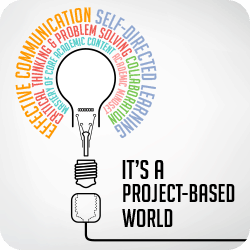I had no formal training before becoming a public school superintendent. I didn’t know what it was like to teach middle school students for five periods a day. I didn’t know what it was like to be a school principal and have my judgment questioned every day. I didn’t know inclusion was a special education placement. I didn’t know what it was like to work for an elected school board. I had a superficial knowledge of EdPolicy. Call me the least well-prepared superintendent ever--at least by traditional standards.
But in other ways, I was remarkably well prepared having launched startups and led big organizations. I taught the capstone course at a business school and developed a leadership program at another university. I was an expert in finance, a certified cash manager, and a consultant on new technology. I knew how to build business plans, manage projects and develop real estate. Having worked in multiple sectors, I had a rich sense of the world our graduates were headed for.
Was my hiring genius or a mistake? Perhaps some of both. What seems clear in hindsight is that I would have benefited from formal preparation (at least a crash course like the Broad Academy). On the other hand, the breadth and change leadership experience I brought to the job were invaluable for the early days of blended learning and new school development. School and system heads would benefit from broader professional experiences that build perspective, change management skills, organization development know-how, and facility with community development.
In Preparing Leaders for Deeper Learning, a report co-authored with Digital Promise, we outlined ten roles for leaders in deeper learning outcomes. Leaders need to be skilled at setting a vision and mission for an organization, innovating and leading change efforts, focused on instruction and outcomes, and involved locally and in policy to affect change.

Compared to those that advocate for a narrow instructionally focused preparation, Lyle Kirtman and Michael Fullan identified seven Key Competencies for Whole-System Change that “delineate the traits, characteristics, values, and behaviors of leaders who can focus on their own improvement, build capacity in others, and focus outwardly on the future trends in education.”
Fullan and Kirtman suggest a leader equipped to create and sustain systemic change:
- Challenges the status quo;
- Builds trust through clear communication and expectations;
- Creates a commonly owned plan for success;
- Focuses on team over self;
- Has a high sense of urgency for change and sustainable results in improving student achievement;
- Has a commitment to continuous improvement for self and organization; and
- Builds external networks and partnerships.
Implications for EdLeader Development
The roles involved in developing deeper learning environments and the advice from Fullan and Kirtman stresses bringing an innovation mindset to the work with a toolbox of change management skills.
Given the complexity of school and district change, a distributed model of leadership (that Mark Edwards describes in Thank You for Your Leadership) leverages the knowledge and skills of a diverse team.
Whether a formal preparation or a series of microcredentials earned on the job, following are the badges we think EdLeaders should earn through demonstrated competence.

What kinds of developmental pathways would facilitate this kind of development? We think the best case scenario is a combinations of aligned work experiences and learning experiences. Some of the work experiences should be full-time posts and others temporary schoolwide or systemwide projects (e.g., facilitating an improvement plan, leading an innovation pilot, managing an outreach campaign).
Before leading a school, EdLeaders should have the opportunity to conduct several internships in the private and public sector. Participating in community leadership organizations is a particularly good way to connect with a community and build a network.
Prospective school and system heads should visit many schools to build context and an appreciation of options.
Systems heads benefit from immersion in several complex systems and exposure to different change theories and developmental pathways.
Leading an engagement that results in a community agreement is a great experience for every prospective school head. Improvement plans require facilitation of internal agreements while plans for innovation often require broader community agreement (because they involve risk, investment, and support). All EdLeaders must be empathetic listeners, skilled communicators, and capable facilitators.

For more, see: